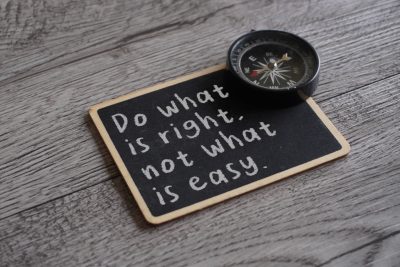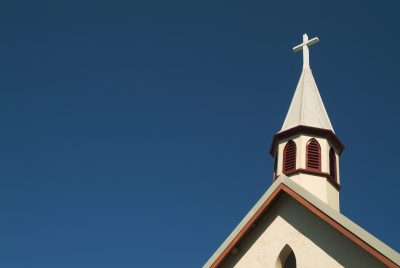David laughs when asked what years he attended SES. As a full-time orthopedic surgeon, he spent 12 years earning his master’s in apologetics, graduating in 2013.
When he started back in 2001, SES consisted of some trailers behind McKee Road Baptist Church in Charlotte. He decided to enroll there after a barrage of questions from his medical partner in Alabama. The fellow surgeon knew a lot about Christianity and had just as many questions.
“I knew there were good answers to those questions. I just didn’t know what they were,” David said. “It was sort of like God was tapping me on the shoulder, saying, ‘You can do better than this.'”
David’s first class was Systematic Theology with Dr. Norm Geisler. Back then, he received a series of lectures on cassette tapes and followed the teaching through textbooks.
As someone who had been through medical school, David felt just as accomplished when he wrapped up his master’s at SES. He still refers back to his first paper, “What Is Truth?” for Dr. Geisler’s Introduction to Apologetics course. And he’s passed on copies of that paper over the years following conversations on that very topic.
Now in his late 60s and practicing in Kentucky, David finds he has to take a couple of steps back when speaking to others about faith. Growing up, most people around him knew the Bible to be true and didn’t question Jesus as the Son of God. Today, he more often hears, “That’s true for you but not for me.”
He can no longer assume the person he’s talking to will accept what the Bible says on anything. He needs a new starting point. And that’s where his SES training rises to the occasion.
David offers an example: “You can’t say, ‘Well, gravity is true for you but not for me.'”
More often than not, he begins with absolute versus relative truth and builds a case for Christ from there.
David has learned how to ask questions, stimulate thinking and encourage non-Christians to defend their positions, too.
His goal isn’t necessarily to lead every person to salvation, but—as he’s heard Greg Koukl say at the National Conference on Christian Apologetics—”to help a person take one step closer to Christ.”
With a number of patients, David can’t spend a lot of time with each one, but sometimes their questions naturally lead to conversations on faith, “or you feel the Holy Spirit nudging you.” He lets patients know he’s a Christian and looks for ways to raise spiritual conversations without offending them.
Not everyone is open, he said, but many are. Particularly in his field of work, people want to know why God allows suffering. It’s something he can’t answer in a sound bite, but he can have meaningful conversations with people over time.
And that partner who had all the questions back in Alabama? David heard he accepted Christ the week before he died.







